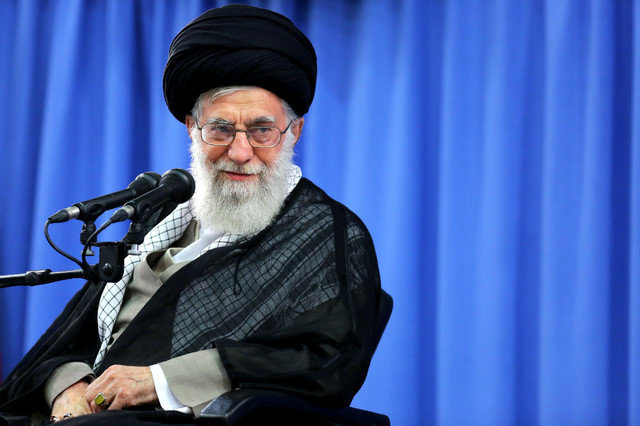
Leader: Riyadh responsible for Hajj security

"The serious and constant demand of the Islamic Republic is the preservation of
security, dignity, and comfort of all Hajj pilgrims, particularly Iranian ones,”
Ayatollah Seyyed Ali Khamenei said in a speech to Hajj officials in Tehran.
"To secure Hajj is the responsibility of that country which manages the holy
shrines (the Holy Mosques),” the Leader added.
"The pain left in the hearts of Iranians from the 2015 Hajj tragic incidents is
unforgettable.”
The Leader was referring to a deadly stampede near the Islamic holy city of
Mecca in September 2015 during which hundreds of pilgrims, including 464
Iranians, were killed and hundreds more injured.
While Saudis said at least 769 pilgrims had been killed in the crush, a Reuters
count reported as many as 2,070 people had died, the highest loss of life at the
annual pilgrimage since 1990 when 1,426 people were killed in a crush in an
overcrowded pedestrian tunnel.
The same year just two weeks before the start of annual Hajj pilgrimage, more
than a hundred were killed after a crawler crane toppled over at Mecca's Grand
Mosque.
The stampede caused a war of words between Iranian and Saudi officials as bodies
of Iranian victims were not repatriated swiftly.
Tehran castigated Riyadh for "incompetence” to manage the ritual, Islam’s
holiest practice.
Though the bodies were transferred to Iran, the case is not resolved yet. After
the incident, Iran decided to cancel its participation in the 2016 pilgrimage to
Mecca, blaming "Saudi sabotage” for the cancellation.
"The evil family tree of the Saudi dynasty does not have the competence to
manage the holy shrines," Ayatollah Khamenei said in a meeting with the families
of Iranians killed in the 2015 disaster.
Iran last boycotted the pilgrimage for three years between 1988 and 1990 after
Saudi security forces killed more than 400 Iranians during the 1987 Hajj.
The event also led Saudi Arabia to lower the maximum number of Iranians approved
to take the Hajj to 45,000.
Finally, the two countries which have no diplomatic relations since the storming
of the Saudi diplomatic posts in Tehran and Mashhad in January 2016, itself a
result of Riyadh’s execution of a prominent Shiite cleric, could reach an
agreement over this year’s Hajj after months of negotiations.
This is while Iran’s Foreign Ministry spokesman said last week that the Saudis
haven’t yet issued visas for a diplomatic team to handle consular affairs of its
nationals during the Hajj period.
On Sunday, Iran flew a first group of its pilgrims from the southern port city
of Bandar Abbas. Official statistics said more than 85,000 Iranians will partake
in this year’s Hajj.
As part of a safety drive to avoid deadly incidents during the practice, Saudi
officials said they would introduce electronic identification bracelets for all
pilgrims to Mecca.
Iran also announced its pilgrims travelling to Saudi Arabia for this year’s Hajj
season will wear electronic bracelets to "avert possible problems”.
Hajj best times to take stand on al-Aqsa
Elsewhere in his remarks, the Leader urged Muslims participating in this year’s
Hajj to take a united stance against Israeli efforts to control the al-Aqsa
Mosque.
Tensions are still high at Islam's third holiest site in Jerusalem al-Quds where
Israel deployed troops last week to restrict access to Palestinian worshipers
but had to retreat amid fears that the standoff could turn to a large-scale
revolt.
"The Zionists have become emboldened and rude, giving themselves the right to
get tough with the owners of the al-Aqsa Mosque and prevent them," Ayatollah
Khamenei said.
"Where can the Islamic Ummah find a better venue than Hajj to comment on the al-Aqsa
Mosque? Where is the place to take a position against the mischievous presence
of America in the region? Hajj is the best venue," the Leader added.
Ayatollah Khamenei also recommended that the pilgrims focus on the issue of
unity, saying no one should do anything which may help create friction.















